Share
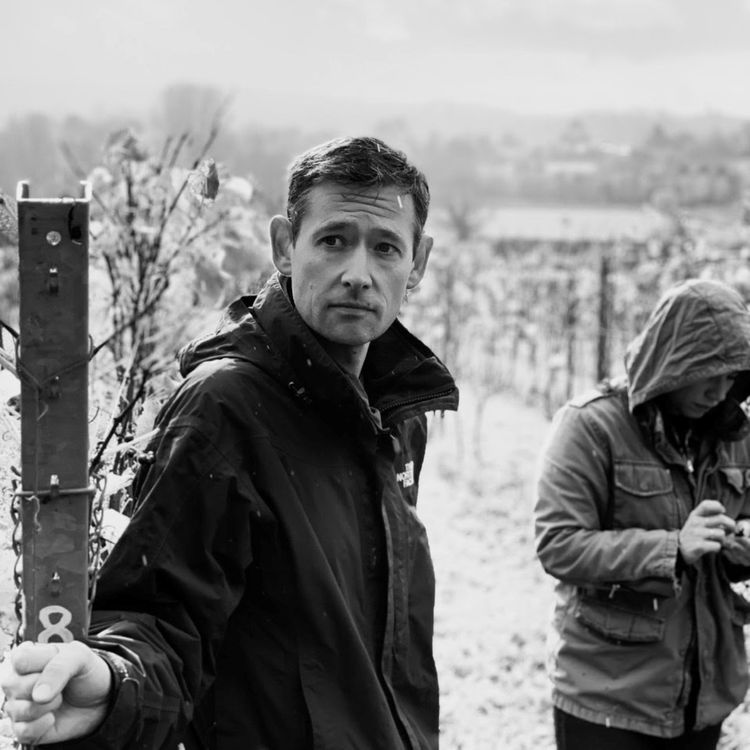
Graft Wine Co Radio
Ep. 6 - Jacob Leadley, Black Chalk, Hampshire, England
We talk to Jacob Leadley, English winemaker extraordinaire, about how a casual conversation had round the family dinner table took him from winemaker at Hattingley Valley Wines, to co-founder of England's most exciting and innovative new wineries; Black Chalk.
Black Chalk is the personal project of award winning winemaker Jacob Leadley and his family. After 8 years making over 120 English Sparkling wines in Hampshire he has recently turned his attention to producing the critically acclaimed Black Chalk.
Sourcing fruit from top growers in Hampshire, Black Chalk is about quality without compromise, "it is a delight to be able to focus my time and energy creating wines that I feel really showcase what Hampshire can do so well, purity of fruit, depth, weight and balance."
More episodes
View all episodes
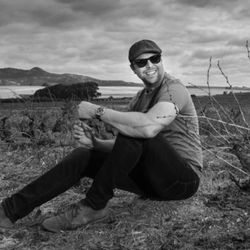
7. Ep. 7 - Albert Ahrens, The Ahrens Family, South Africa
23:32||Season 1, Ep. 7We spend time with Albert Ahrens in the Graft offices to talk about the advent of the South African wine revolution, how to do packaging just right, and the importance of soul in wine.Albert was winemaker at Lammershoek in the Swartland, before stints in Champagne, Priorat and the Rhône Valley, returning home to work on a variety of projects before setting up on his own. He drives 40,000km per year between vineyards, making wine his cellar in Wildepaardejacht, a serene location beneath the Du Toitskloof mountains, just outside Paarl. Then there’s his MCC, under the separate House of GM & Ahrens label and cellared in Franschhoek – the only bubbly maturation cellar in the centre of town – further adding to the odometer. These are terroir-driven wines from all over the Cape, taking in the Swartland, Voor-Paardeberg, Stellenbosch (Bottelary Hills to be precise), Franschhoek, and Elgin, with more to come from Helderberg, Robertson, Paarl and Tulbagh. Wines that, so Albert says, express their “address” first and foremost, rather than the cultivar..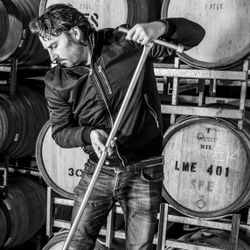
5. Ep. 5 - Sam Coverdale - Polperro/Even Keel, Mornington Peninsula
25:55||Season 1, Ep. 5We catch up with Sam Coverdale at Rosewood London to ask him about his near miss with the 9-5-daily-grind in Canary Wharf to learn oenology and viticulture alongside an heiresses to one of the world's largest wineries, finding your voice in an industry loaded with greenwashing, and his take on whether or not Pinot Noir is indeed the greatest. Sam Coverdale established Even Keel in 2006 with a vision to create drinkable, elegant wines that celebrate the individual strengths of Australia’s wine regions. Since 2009, he has specialised in premium, single-vineyard wines from the Mornington Peninsula, under the Polperro label, using a mix of organic and biodynamic viticulture principles.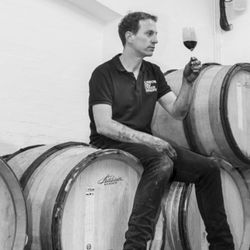
4.2. Ep. 4.2 - Gavin Monery, Vagabond, London
31:38||Season 1, Ep. 4.2We catch up with Gavin Monery at the Vagabond winery in Battersea. Gavin reveals what he used to drink as an Australian cellar hand, and what he really thinks about rosé.Gavin made his start in wine as a 'cellar rat' in Margaret River, almost 20 years ago. Initially working with a large, commercial producer Gavin worked his way up to a Cellar Foreman position, before studying part time and shifting focus to become a Lab Technician. Eventually, an obsession with quality lead to a role with Cullen Wines, where he was introduced to organic and biodynamic vineyard principles, along with regular tastings of some of the best wines in the world. These generous tastings stoked a desire for travel and after three years learning at Cullen, Gavin packed his bags for what became a decade of travel. During this time he worked in 6 countries, highlights of which included working with Jean Louis Chave in the Rhone, buying grapes and making wines under his own label in Burgundy and building the first winery in London since Roman times. Bitten by the English wine bug, Gavin moved to Vagabond Wines in late 2017 and built a winery in the Battersea Power Station, where he is currently focused on the challenge of making the best still wine in England.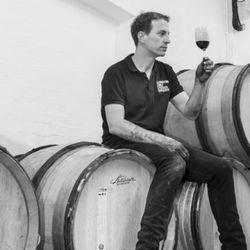
4.1. Ep. 4.1 - Gavin Monery, Vagabond, London
21:19||Season 1, Ep. 4.1We catch up with Gavin Monery at the Vagabond winery in Battersea. Gavin reveals what he used to drink as an Australian cellar hand, and what he really thinks about rosé.Gavin made his start in wine as a 'cellar rat' in Margaret River, almost 20 years ago. Initially working with a large, commercial producer Gavin worked his way up to a Cellar Foreman position, before studying part time and shifting focus to become a Lab Technician. Eventually, an obsession with quality lead to a role with Cullen Wines, where he was introduced to organic and bio-dynamic vineyard principles, along with regular tastings of some of the best wines in the world. These generous tastings stoked a desire for travel and after three years learning at Cullen, Gavin packed his bags for what became a decade of travel. During this time he worked in 6 countries, highlights of which included working with Jean Louis Chave in the Rhone, buying grapes and making wines under his own label in Burgundy and building the first winery in London since Roman times. Bitten by the English wine bug, Gavin moved to Vagabond Wines in late 2017 and built a winery in the Battersea Power Station, where he is currently focused on the challenge of making the best still wine in England.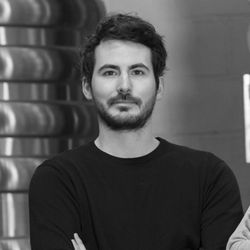
3. Ep. 3 - Julien Brustis, Winerie Parisienne
21:32||Season 1, Ep. 3We sit down with Julien Brustis, winemaker of Winerie Parisienne, at The Grocery in Shoreditch or the scoop of the century, and to find out what makes Paris one of the most exciting places in the world to make wine.Winerie Parisienne, the first wine producer and professional vineyard in Paris modern history has been a hit in the French Capital with its creative blends and striking identity. The current line-up from Winerie Parisienne include wines that have been made in Paris by sourcing grapes from top vineyards across France, all harvested by hand. It has also planted the first professional vineyard for 100 years (25 acres) in the Paris region (near Chateau de Versailles), under supervision of J. Brustis, a former oenologist at Chateau Angélus.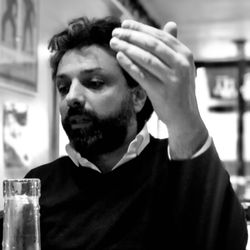
2. Ep. 2 - Filippo Mangione, Ayunta, Sicily.
33:29||Season 1, Ep. 2We catch up with Filippo Mangione at Soif in Clapham ahead of a journalists' lunch to find out what was so special about Etna that brought him back home to Sicily to make wine, despite how 'weird' he seemed to all the locals.Filippo Mangione farms five hectares of old, low-yielding vineyards – some vines between 150 and 200 years old – all within a mile of each other on the northern slopes of Mt Etna in an exceptional contrada called Calderara Sottana, whose rocky, volcanic soils are derived from Etna's very first eruption 3,000 years ago. His bush vines are 700 metres above sea level and found within one of only three sites on Etna whose fundamental soils have seemingly not been altered by ensuing eruptions. Work in the vineyards is both hands-on (no machinery) and hands-off (no chemicals), with native grapes interplanted as was traditional.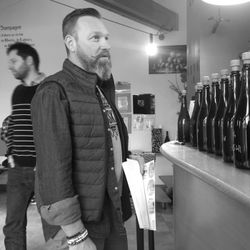
1. Ep. 1 - David Levasseur, Champagne A. Levasseur
24:14||Season 1, Ep. 1We chase David Levasseur down at Gravetye Manor in Sussex to get his take on sustainable viticulture in one of the world's most sought-after appellations, Champagne.David Levasseur is a passionate nonconformist. His micro-grower Champagne house, set up by his grandfather in the 1940s and assuming its name from his father Albert, produces around 35,000 bottles per year from organic grapes. Here in the heart of the Montagne de Reims national park, David has embarked on a sensory journey to unpick the intricate terroir of his little corner of Champagne, while giving a leading role to Pinot Meunier, too often the supporting act.